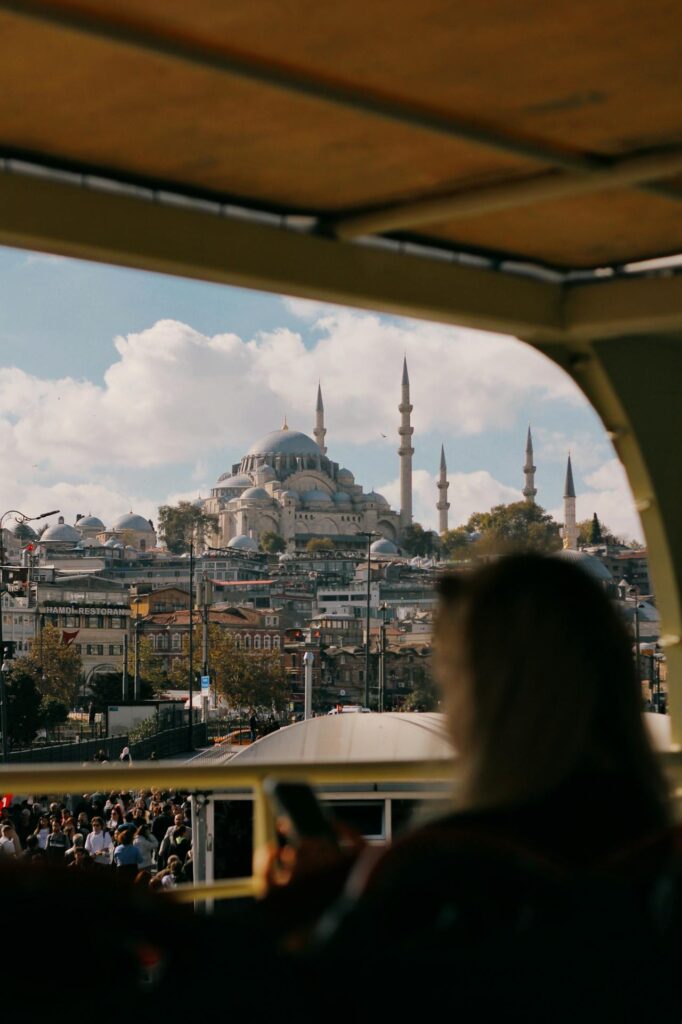
When visiting Turkey, foreign tourists can have an enriching experience, but like any destination, there are a few cultural norms and practices to be mindful of to ensure a smooth and respectful trip. Here’s a guide on what to keep in mind:
Things Foreign Tourists Should Pay Attention To:
- Cultural Sensitivity: Turkey is a blend of modernity and tradition, with a significant portion of the population practicing Islam. While cities like Istanbul are very cosmopolitan, it’s important to dress modestly, especially when visiting religious sites such as mosques. Women should cover their shoulders and wear long skirts or pants, and headscarves are often required in mosques.
- Respect for Religion: Avoid making negative or insensitive comments about religion. During prayer times, especially on Fridays, mosques will be busy, and it’s polite to stay quiet and avoid photographing people in prayer.
- Public Conduct: Public displays of affection are more acceptable in big cities, but in rural or conservative areas, they may be frowned upon. Also, be mindful of hand gestures and avoid raising your voice in public spaces, as it could be seen as disrespectful.
Approach to Foreigners:
The Turkish people are known for their warmth and hospitality. You will often be greeted with curiosity and friendliness, and locals tend to go out of their way to help tourists. Offering tea or helping with directions is quite common. However, be cautious in tourist-heavy areas, as scams targeting tourists can sometimes occur, especially in popular markets or restaurants. Always check prices beforehand and be polite but firm if you feel uncomfortable.
Communication with Locals:
Most locals, especially in major cities like Istanbul, Antalya, and Izmir, are familiar with English, but in smaller towns, English speakers may be harder to find. Learning a few basic Turkish phrases (like “Merhaba” for hello and “Teşekkür ederim” for thank you) goes a long way and is highly appreciated.
- Gestures and Body Language: Avoid pointing your finger at someone or making the “OK” hand sign, as these can be considered offensive.
- Respecting Personal Space: While Turkish people are friendly, giving them personal space, especially in crowded areas, is considered polite.
In Case of Problems:
If you find yourself in an uncomfortable or difficult situation, the following can be useful:
- Police: Turkey’s tourist police (Turizm Polisi) are specially trained to assist foreigners and often speak English. In any emergency, you can dial 155 for the police or 112 for medical emergencies.
- Embassies: Contacting your country’s embassy can be helpful if you lose your passport or face serious issues.
- Local Authorities: In many tourist areas, there are tourism offices where you can get information or report a problem.
During my time in Turkey, what stood out the most was the sheer hospitality of the locals. Unlike some other tourist heavy destinations, Turkey’s people were genuinely interested in helping, whether you’re lost or just looking for a good restaurant. In smaller towns, it was heartwarming to see how quickly strangers would offer help, even with limited English. However, in more touristy spots, especially around markets and bazaars, it was important to be firm with vendors polite but clear about what you wanted or didn’t want.
What I loved about Turkey was its balance of old and new. One moment you could be in a bustling, modern street in Istanbul, and the next, you’d be sipping tea in a quiet corner of an ancient village. The key is to respect this balance, embrace the warmth of the people, and take your time to enjoy what this rich country has to offer.